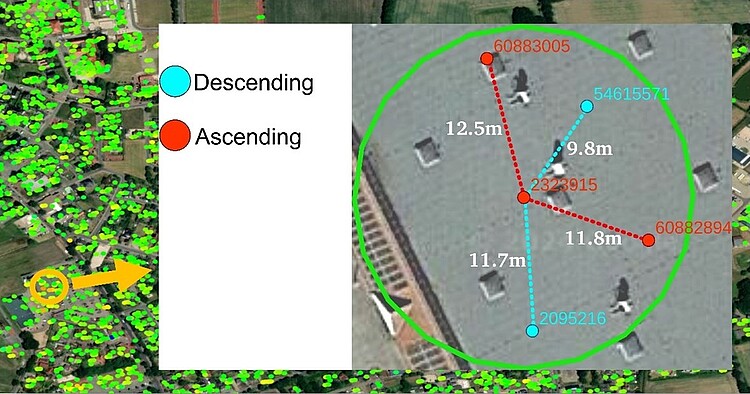Spatio-temporal Change Point detection in InSAR Persistent Scatterer Time Series
 © GIH
© GIH
| Led by: | Dr.-Ing Mohammad Omidalizarandi, Kourosh Shahryarinia , M. Sc. |
| Year: | 2025 |
Spatio-temporal Change Point detection in InSAR Persistent Scatterer Time Series
Background: Accurately detecting significant changes in the Earth’s surface is essential for timely intervention. As one of the key techniques in Interferometric Synthetic Aperture Radar (InSAR), Persistent Scatterer Interferometry (PSI) generates time series data of Persistent Scatterers (PS), which are stable points on the Earth's surface that enable precise displacement measurements over time. Detection of change points is a crucial technique in this context, helping to identify significant changes in the PS time series that could indicate critical issues for civil structures and infrastructure.
Objective: The goal of this master's thesis is to utilize deep learning models to detect significant changes in trends and steps of PS time series in a spatio-temporal manner. This approach could help identify areas exhibiting significant land deformation in Germany.
Specific Methodology:
- Clustering of PS time series: In this thesis, we aim to develop a method that enables clustering of neighboring PS time series that exhibit similar patterns within selected areas.
- Deep Learning models for change point detection: The core of this study is the use of a change point detection deep learning architecture capable of analyzing multiple time series to identify change points based on appropriate scoring or threshold criteria.
- Statistical testing (optional): Employing a statistical testing method to judge the significance of detected change points.
Provided Materials: PS time series of the study area located in Germany (.shp files)
Programming Requirement:
Proficiency in Python and the libraries PyTorch or TensorFlow is crucial, as these are fundamental programming skills for developing deep learning models.






